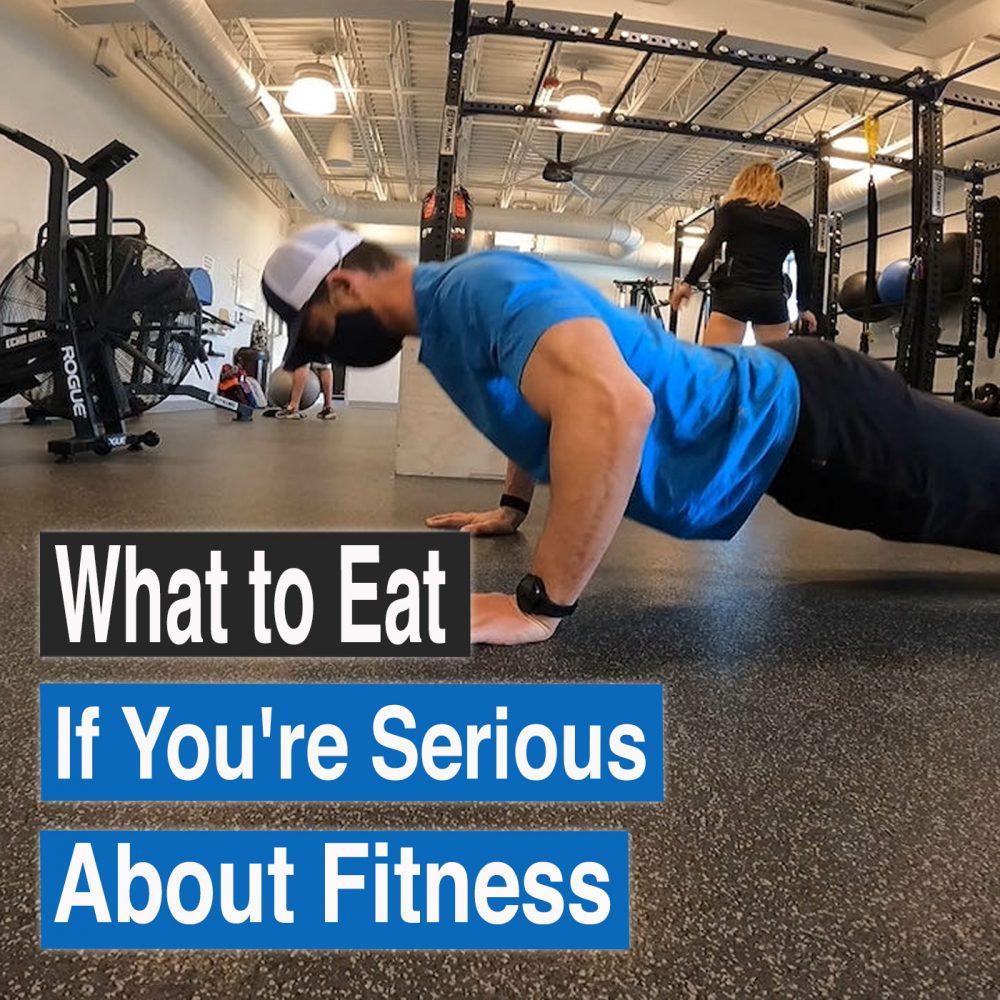
Getting fit and staying fit requires a lot of investment, and that doesn’t just mean in time and exercise equipment.
Fitness requires the right fuel, so if you’re not eating right you won’t be getting the results that you want. Previously, we wrote about ‘Diet Strategy to Maximize Results’, and how you need to be thoughtful about what and how you eat when you’re on a workout regimen.
Taking in the right nutrients (in the right amounts) is essential for any fitness plan. If you aren’t quite sure where to start, then here’s a brief guide of what to eat if you’re serious about getting fit.
While the foods listed below are important to any kind of diet, it’s equally important to check in with your doctor or a registered dietician to make sure that you don’t have any nutritional issues.
Take a look below at some essential foods for exercise (and life), and make your fitness journey better than ever before.
Carbohydrates
Carbohydrates are absolutely essential for regular activity (unless you’re keto but that’s a different discussion), and especially if you’re an athlete or someone who does intense exercise.
Carbs play a variety of important roles in the human body, and are essential for maintaining energy and even enable protein synthesis so you can build muscle.
Your genetics, muscle mass, duration and intensity of exercise will determine your carbohydrate intake, so ensuring you get the right amount is essential for sustained physical activity. Good Housekeeping recommends that you eat carbs that are as close to their natural state as possible. These include 100% whole grains like brown rice and quinoa, as well as vegetables, fruits, and unsweetened dairy products. Just make SURE your carbs are also low glycemic! Here’s a great chart.
Protein
Every athlete knows just how important of a role protein plays in staying fit. Protein isn’t just needed for building muscle— it can also reduce muscle soreness and even promote muscle repair (aka build muscle…).
If you want to repair, maintain, and grow your muscles, then ensuring you have the right amount of protein in your diet is essential.
The best sources of protein include grass fed lean meats, free range poultry, wild caught fish, pasture raised eggs, milk and yogurt (if you can handle lactose).
However, it can be pretty tough taking in the required amount of whole food proteins, especially if you’re working out a lot. In that case, turning to a supplement can be a great idea. There are tons of protein supplements on the market, and one good option is Brightcore’s multi-collagen protein powder. Collagen is the most abundant protein in the body, and can also help lubricate your joints and keep your bones healthy and strong. Just make sure it’s mixed with a wide variety of the above mentioned protein sources.
Healthy Fats
While fat isn’t something that people usually think about when it comes to healthy eating (but they should), getting the right kind of fat is 100% essential to your health.
These healthy fats are also called monounsaturated fats and polyunsaturated fats, and can reduce your bad cholesterol levels, prevent abnormal heart rhythms, lower your blood pressure, and minimize the risk of heart disease and stroke.
A great example of healthy fat is omega-3, a type of polyunsaturated fat that’s been proven to improve cardiovascular health.
Good sources of omega-3 fatty acids are wild caught oily fish like salmon and mackerel, or nuts like almonds. If you feel you don’t have enough of that in your diet, a fish oil capsule like Kirkland Signature Fish Oil is usually enough to get you back on track.
Fiber
Finally, one oft-neglected aspect of fitness is just how essential a healthy gut is to a healthy body and mind (yep, it can effect your mood).
When your digestive system is healthy, you’re better equipped to fight off bad bacteria, as well as properly absorb the nutrients you need. It’s also important in maintaining the general wellbeing of your body, and can lead to an improved mood, better sleep, and a healthier brain.
Fiber plays a large role in maintaining the health of your gut, so it’s not something to skip out on. The best sources of fiber are green leafy vegetables, legumes, whole grains, fresh fruits, and even nuts. Whole grain products are ALWAYS better than the fine-milled grains found in white bread and pasta, so be sure to take note of that too.
Healthline recommends high-fiber foods like pears, avocado, artichoke, split peas, chia seeds, and much more. Try to find a fiber source that works for you, and make sure you take in healthy amounts in your diet every day.
You can even supplement with something like phyllium husk to keep things moving in the right direction ;-).
So Much More
If you have any more questions to dive deeper into any of these nutrition topics please drop them in the comments below.

